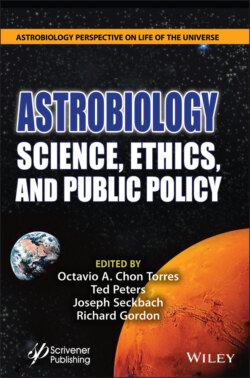Читать книгу Astrobiology - Группа авторов - Страница 37
2.3.6 Should We Weaponize Space?
ОглавлениеShould nations weaponize space? Should militaries establish orbital beachheads from which to launch attacks? No. At least according to the 1967 United Nations Outer Space Treaty, which stresses that celestial locations could be used “exclusively for peaceful purposes.” The treaty explicitly prohibits the “placing in orbit around the Earth any objects carrying nuclear weapons or any other kinds of weapons of mass destruction.”
In 2020, the United States formulated the doctrine to guide its new Space Force.
“Military space forces are the warfighters who protect, defend and project spacepower. They provide support, security, stability, and strategic effects by employing spacepower in, from, and to the space domain. This necessitates close collaboration and cooperation with the U.S. Government, Allies, and partners and in accordance with domestic and international law” [2.80] [2.70].
Because of the inability of the UN to enforce its rule, regulations of military equipment in space are today the responsibility of unilateral, bilateral and multilateral agreements, not the United Nations. No global community of moral deliberation exists. At least not yet.
“For modern warfare, space has become the ultimate high ground, with the U.S. as the undisputed king of the hill,” writes Lee Billings [2.7]. “China and Russia are both developing capabilities to sabotage crucial U.S. military satellites” [2.7]. One can only imagine a skirmish that could lead to Star Wars or, more precisely, Satellite Wars.
